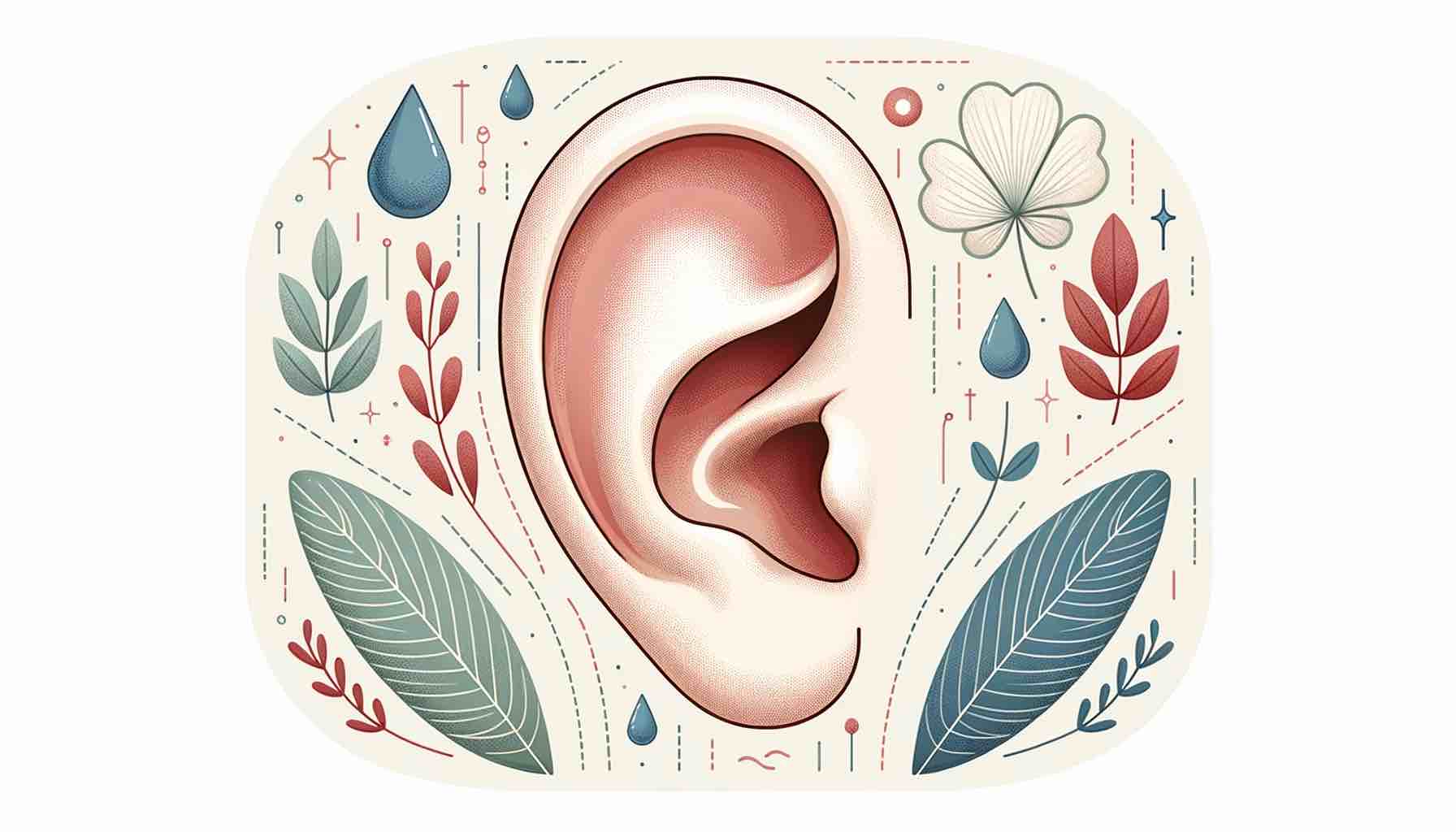
Navigating through the labyrinth of skin conditions, ear eczema and dermatitis stand as perplexing enigmas. These conditions, often shrouded in discomfort and a cascade of symptoms, require a nuanced understanding and a multifaceted approach to management. This guide aims to demystify these conditions, offering a beacon of clarity and practical advice to those embarking on a journey towards relief and better ear health.
Introduction: A Closer Look at Ear Eczema and Dermatitis
Ear eczema and dermatitis manifest as inflamed, itchy, and often flaky skin within and around the ears. These conditions can be particularly challenging due to the sensitive and intricate anatomy of the ear. They can affect various parts of the ear, including the earlobes, the external auditory canal, and even the ear drum, each bringing its own set of challenges and considerations (source).
Symptoms: Deciphering the Signs
- Itching and Discomfort: These symptoms are often the heralds of ear eczema and dermatitis, announcing their presence with persistent discomfort.
- Redness and Inflammation: Visual manifestations that often accompany these conditions, adding to the physical discomfort.
- Flaking and Dryness: Symptoms that often manifest, leaving behind a trail of scaly patches or flakes within or around the ears (source).
Navigating the Treatment Landscape
- Topical Treatments: Creams and ointments often stand as the first line of defense, aiming to soothe inflammation and manage itching.
- Ear Drops: Specialized formulations designed to address symptoms within the delicate environment of the ear canal.
- Holistic Approaches: Considering broader strategies such as identifying and avoiding potential irritants and allergens, as discussed in this article, can be instrumental in managing these conditions.
Ear Eczema vs Psoriasis: Clarifying the Differences
Navigating through skin conditions that affect the ears, ear eczema and psoriasis often emerge as prevalent issues. Both conditions manifest with their unique sets of symptoms and triggers, necessitating distinct approaches for management and care.
Ear Eczema: Ear eczema typically presents as itchy, inflamed, and dry skin in and around the ears. It’s often a manifestation of atopic dermatitis and can be influenced by various external factors such as allergens and irritants. Understanding and managing triggers is a crucial aspect of managing ear eczema effectively. For a deeper understanding of managing eczema triggers, you might find this article helpful.
Psoriasis: Psoriasis in the ears manifests as thick, scaly patches of skin, often appearing silver or white. It’s an autoimmune condition, where the body’s immune system inadvertently targets healthy skin cells. The management of psoriasis often involves a combination of lifestyle modifications and medical treatments.
Key Differences:
- Cause: Ear eczema is often triggered by external factors such as allergens, while psoriasis is an autoimmune issue.
- Symptoms: Eczema in the ears usually leads to red, itchy, and inflamed skin, while psoriasis tends to cause thicker, scaly patches.
- Management Strategies: The approach to managing these conditions varies, with eczema often requiring the avoidance of triggers, and psoriasis necessitating a more medical-focused approach, as discussed in this guide.
Conclusion: Charting the Path Towards Relief
Embarking on the journey through ear eczema and dermatitis is a voyage filled with learning, adaptation, and perseverance. Armed with a compass of knowledge, practical strategies, and a repository of resources like this comprehensive guide, one can navigate the tumultuous seas of these conditions with a sense of direction and hope for calmer waters ahead.
FAQs for the Post
- What are the common symptoms of ear eczema and dermatitis? Ear eczema and dermatitis typically present a range of symptoms including itching, redness, and flaking within or around the ears. These symptoms can vary in intensity and frequency, often influenced by triggers and environmental factors.
- How do ear eczema and dermatitis typically get diagnosed? Diagnosis usually involves a thorough evaluation by a healthcare professional, often a dermatologist, who will assess the symptoms, examine the affected areas, and may conduct further tests or ask about medical history to rule out other conditions.
- What treatment options are available for managing ear eczema and dermatitis? Multiple treatment avenues exist, such as topical treatments like creams and ointments, specialized ear drops, and holistic approaches that involve identifying and avoiding irritants and allergens.
- Can lifestyle and dietary changes impact ear eczema and dermatitis? Lifestyle and dietary modifications can play a role in managing the conditions. For instance, understanding and avoiding triggers, as well as considering dietary influences on inflammation, can be beneficial strategies.
Blog Tags for the Post
ear eczema, ear dermatitis, skin conditions, ear health, inflammation, itching, flaking, treatment strategies, symptom management, holistic approaches









